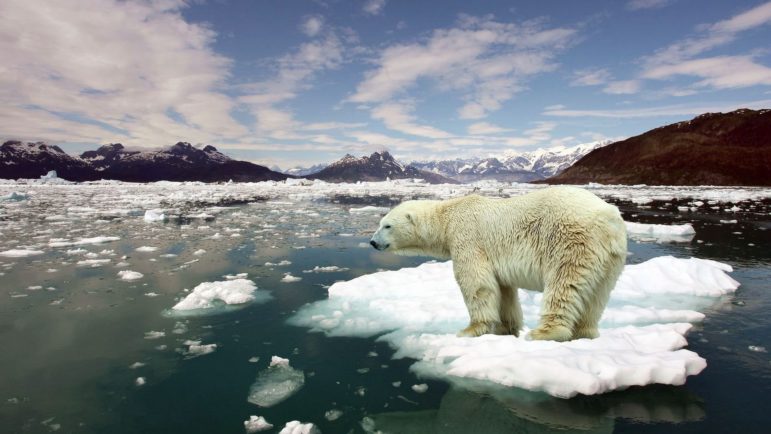It is 2017, and Yom Ha Shoah is coming.
This is what we now know.
The world knew what was happening to the Jews.
This past week, we learned that as early as December 1942, the United States, Great Britain and Russia knew that two million Jews had been massacred and millions more were at risk of being killed.
In December 1942, British Foreign Secretary Anthony Eden told the British parliament that the Nazis were in the process of exterminating the Jews. Eden said that a similar statement was also being read out in Moscow and Washington at the same time.
“The German authorities, not content with denying to persons of Jewish race in all the territories over which their barbarous rule extends, the most elementary human rights, are now carrying into effect Hitler’s oft-repeated intention to exterminate the Jewish people,” Eden said in the statement.
In March 1943, based on reports from Europe, the Archbishop of Canterbury William Temple, head of the Church of England, pleaded with the British government to accept Jewish refugees who were in danger of being massacred.
“In view of the massacres and starvation of Jews and others in enemy and enemy-occupied countries,” Temple wrote to the House of Lords, the government should offer its “fullest support for immediate measures, on the largest and most generous scale… for providing help and temporary asylum to persons in danger of massacre who are able to leave enemy and enemy-occupied countries.”
Viscount Cranborne, a minister in Churchill’s war cabinet, said that Britain was not in a position to accept large numbers of refugees. Yes, the government sympathized with the situation, but it had to take care of its own citizens first.
That was what they knew about the Shoah.
That was when they knew it.
And they did — next to nothing.
Imagine that it is 2077.
Imagine yourself in south Florida — in my community, Hollywood, for example.
Our community was several miles inland from the Atlantic Ocean.
It used to be known as Emerald Hills.
Not anymore.
Now, it is called Emerald Isle — because the waters rose from the Atlantic Ocean and permeated all of the areas to the east.
Ocean Drive, the old A1A which hugged the coast, ceased to exist in 2063.
It is now, simply, the Intracoastal Waterway.
The luxury buildings on the Atlantic Ocean are still accessible, albeit by motor boats, all of them self-driving.
A group of Jewish teenagers are speaking to some of their elders, some of whom were b’nai mitzvah back in 2016 and 2017.
They want to know: what was it like in the old days?
One elder spoke up. “We could show you pictures of us, standing up to our ankles during the King Tide in east Hollywood in 2016. It was incredible.”
Another elder said: “At a certain point, the flood insurance for people living near the ocean became too much for many people. So, they started to leave.
“And then, with the frequent flooding and moisture, there was so much mold and mildew.
“And then, finally, over a few decades, the waters just continued to rise. Have you ever heard of the Keys – as in Biscayne, Marathon, Largo, Key West?”
One of the teenagers said: “Oh, sure, we’ve heard stories about them, but are you telling me that they really existed?”
Another teenager asked: “And was there really such a place as Miami Beach?”
And so, the elders start to speak about the era of Sea Level Rise. They talk about other Jewish communities that used to exist — Charleston, South Carolina; Los Angeles; New Orleans; sections of New York City; Long Island — gone.
Finally, one of the kids asks: “When did you know about this, and what did you do about it?”
An elder said: “We did all that we could. We became local and national activists on the issue. We had study and activism weekends. We screamed about carbon dioxide emissions. Sure, it’s always hot down here.
“And then, the EPA was dismantled. The environmental commitments that our country made in Paris – dismantled.
“And then, climate research was cut from the federal budget. For some reason, people thought that corporate profits were more important than caring for the environment.”
Another elder asked: “Have you ever heard of Greenland?”
Said one teenager: “What’s that?”
The elder answered: “Forget it.”
A teenager asked: “When America lost the EPA, did you just give up?”
An elder responded: “Hardly. We mourned the loss of governmental protection, but that did not paralyze us. We understood that we would have to work on our own.
“We became environmentally conscious at our synagogue. Others did as well. Some corporations voluntarily committed themselves to saving the earth. Neighborhoods learned how to be resilient.”
“Perhaps we could have done more. People can always do more. But what we did was holy. We understood the words of the ancient sage: ‘It is not incumbent upon you to finish the work, but you are not allowed to desist from beginning it.”
When he was a little boy, the great teacher and social activist, Abraham Joshua Heschel, heard the story of Abraham and Isaac. He heard about how Abraham almost sacrificed his beloved son on Mount Moriah. But, at the very last minute, an angel came and stayed Abraham’s hand, and saved Isaac’s life.
The story perplexed the young Abraham Heschel, as it has perplexed generations of Jews. He asked his rabbi: “Rabbi, what would have happened if the angel had come a second too late?”
To which his rabbi responded: “Angels are never too late. That is the way it is with angels.”
Heschel concluded: “An angel cannot be late, but man, made of flesh and blood, might be.”
We were too late to save the Jews of Europe.
Will we be too late to save the earth?






